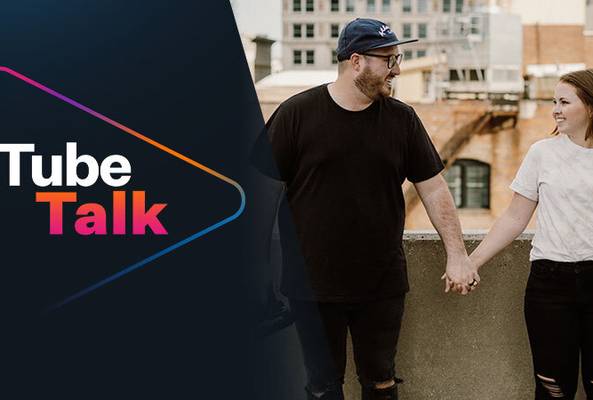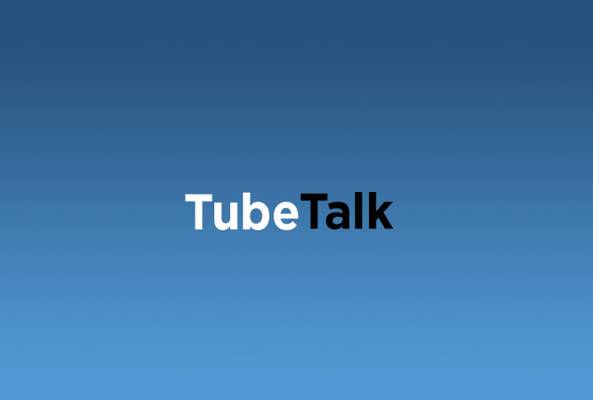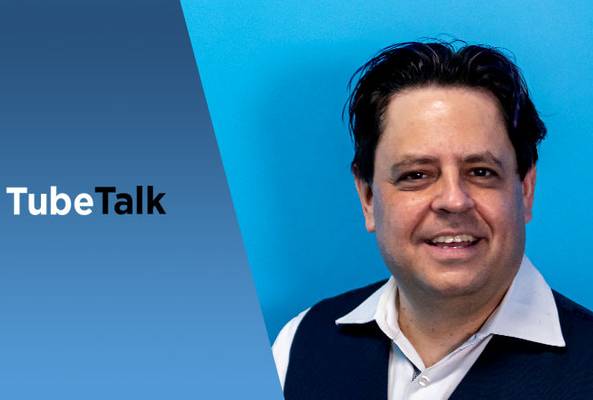Liron Segev, aka TheTechieGuy, is the Director of Customer Success at vidIQ, an internationally celebrated Digital YouTube Strategist working with some of the largest brands and YouTube influencers in the world. Over the past 20+ years, his work has taken him to South Africa, the UK, and the US where he frequently speaks at conferences and provides expert tech commentary for various print publications, radio, and TV while actively running his Tech YouTube Channel.
Why Great Audio Can Boost YouTube Audience Retention: TubeTalk 203 with Mike Russell
How long viewers watch your content for is one of YouTube’s golden signals. So as content creators we know we need to hook attract viewers with engaging topics. But did you know that quality production values can also help your audience retention?
In this episode of TubeTalk, we’re going to take a deep dive into audio specifically, and give you some must-know tips and tricks around sound quality. So many YouTube creators are not putting the effort into audio, and are losing viewers because of it, even when the content they create is otherwise amazing.
I’m joined by Mike Russell, Creative Director at Music Radio Creative. He’s a recognized expert on audio production, and his YouTube channel is packed full of advice about cleaning up audio, producing podcasts, creating music, and more. He really, really understands the quality and voice that's required to capture an audience and keep them riding along with you. In this podcast you will learn:
- Why buying an expensive microphone isn't enough to ensure crystal-clear audio
- How a shaggy carpet can help create the best audio
- How to mix in a music track so your viewers can still hear you
- Best practices for mixing in other sound clips to your video
- Audio tips for creators on the go
- Why recording background noise separately can boost your audio quality
- Why you should build your own library of audio clips

Subscribe to TubeTalk: The Video Marketing Podcast!
TubeTalk has been informing video creators and marketers since 2014, and is one of the most respected and listened to podcasts in the online video industry. Subscribe today so you never miss an episode! You can find vidIQ's TubeTalk at:
Why Great Audio is the Key to YouTube Audience Retention: Podcast Snapshot
Liron Segev: So Mike, just how important is audio?
Mike Russell: Oh, it's super important. You can have a shaky camera, you can record in 10 ATP, but when the sound goes off it doesn't matter how good your content is. It's hard for people to stay focused and pay attention if your audio is off. It also takes away a little bit of your authority because you're sitting there looking fantastic, but people can't hear you.
Also, you can have the best microphone in the world, but if you have not sound-treated your room, you are still not going to sound good. Investing in sound absorption materials on your floor, walls, and ceiling can actually make a big difference. It can cut down on echo and bounce back especially if you live in a noisy location.
It's a really bad experience if someone is listening to a podcast or watching a YouTube video and they have to constantly turn it up and down because you haven’t put the thought into audio.
Liron Segev: Regarding video editors, many creators are so focused on color grading and making sure that we have B roll and making sure that we have the rough animations that we don't give the audio a second thought. Is that a mistake?
Mike Russell:.I do think like color grading is super important. It can give you an edge providing you get it right, otherwise, you look very, very orange or very magenta. But in terms of audio, equalization of the frequencies is very similar to color grading.
You could shoot something on a mirrorless or DSLR camera and stick it straight into your NLE and then mix it, or render it out and upload it and it would be okay. But if you color grade it, it's going to pop out. It's going to look better. Same thing if you equalize your audio and compress your audio. It's kind of like the color grading of audio.
Liron Segev: If you’re doing collaborations with other people, they often send you clips ahead of time so you can mix them into your own track. How do we get the best practice to help them give us better audio?
Mike Russell: It’s all about their setup and what they're using. You don't really have that much control what the other creator is using, but if it's someone you really want to work with you can try and recommend other gear to them or try to work well with the gear that they've got.
So you might say, "Okay, what are you going to be recording with?" And they might say, "Well, I've got a shotgun microphone mounted just off the camera frame. But maybe they can use a handheld mic? You could recommend something like that.
Want To Get More Views on YouTube?
If you want to take your YouTube channel to the next level and get more views on YouTube then make sure to download vidIQ. Join over 1 million other users and use vidIQ to help you research YouTube, analyze videos, audit your own channel, and take actionable steps click here to install now!
And if you’re really serious about growing your YouTube views and subscribers, sign up for exclusive access to the vidIQ Academy and learn how to launch a successful YouTube Channel in just 30 days.



